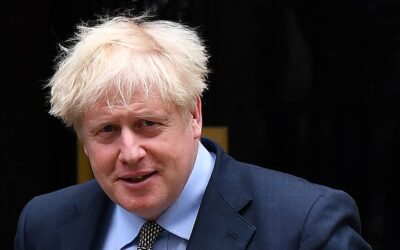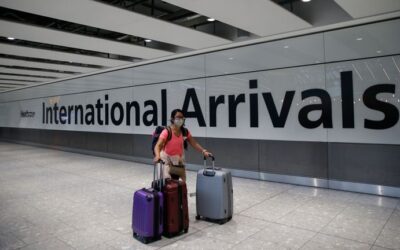An 18-month inquiry into two Boeing 737 MAX crashes that left 356 people dead has identified a “horrific culmination” of failures at the company and among regulators.
The US House of Representatives’ transportation and infrastructure committee released its highly critical report as the aerospace firm continues efforts to return 737 MAX planes to the skies after they were all grounded in March last year.
The decision to withdraw them from service followed the demise of Ethiopian Airlines Flight 302 outside Addis Ababa.
Image: American Airlines 737 MAX passenger planes are parked on the tarmac at Tulsa International Airport in Tulsa, Oklahoma
All 157 on board were killed.
Six months earlier, a Lion Air 737 MAX, carrying 189 passengers and crew, crashed in Indonesia.
Advertisement
The report concentrated on development activities at Boeing and scrutiny by the Federal Aviation Administration (FAA) after official accident reports blamed flight control software for both crashes.
It accused the planemaker of withholding crucial information from the watchdog and pilots and declared that the FAA “failed to ensure the safety of the travelling public”.
More from Business
It said: “The crashes were not the result of a singular failure, technical mistake, or mismanaged event.
“They were the horrific culmination of a series of faulty technical assumptions by Boeing’s engineers, a lack of transparency on the part of Boeing’s management, and grossly insufficient oversight by the FAA.”
Image: Dennis Muilenburg resigned as Boeing’s chief executive late last year to ‘restore confidence’ in the company
The report detailed a series of issues in the plane’s design and the FAA’s approval of it.
The central point focused on the flight control software, known as MCAS.
The inquiry team highlighted “faulty design and performance assumptions” in the system which was supposed to help counter a tendency of the MAX to pitch up and could be activated by data from only a single sensor.
The FAA, which has promised to work with the committee on improvements to its oversight regime, remains the biggest barrier as Boeing continues efforts to return the MAX fleet to service.
Image: Boeing is trying to win permission from US and European regulators to return the MAX fleet to service
Test flights were allowed to resume in June, but the regulator has since demanded further design work.
The company has been forced to compensate airlines affected by the grounding at a time when the global aviation sector is cutting back furiously to account for the collapse in demand for travel because of the coronavirus crisis.
Boeing’s total bill is running at tens of billions of dollars.
In a statement, the company said it had “learned many hard lessons” from the mistakes it had made.









